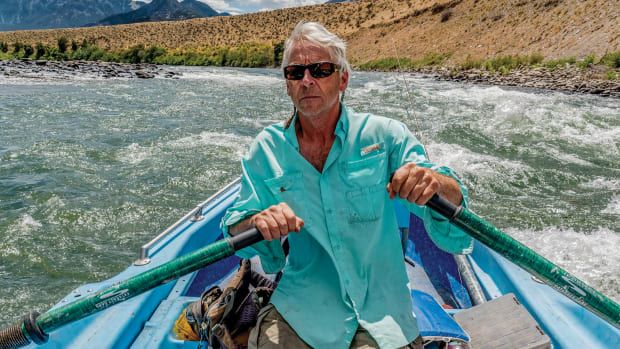|
Cowboys used to be part of our daily mythology. I’m old enough to remember when television came along, cowboys galloping across our screen, Hopalong Cassidy, Matt Dillon, Gene Autry, some of them singing, most of them shooting and slinging a lariat and speaking terse truisms about right and wrong, what defines a cowboy. The leading presenter of modern cowboys is Thomas McGuane, whose books and films keep up with the times. Imagine my delight at opening the current New Yorker and finding a lush short story by McGuane, about two childhood friends who sign on for summer work crews. Rufus and Grant, he with some credits from community college, both try to define their “occupation.” Their summer employer describes the folkways of former frontier – “the old grazing law, ‘Take half, leave half, and leave the big half.’” The preoccupation with how things are done seems charmingly old-fashioned these days, when nothing quite seems moral. As they talk on the phone before meeting for their summer job on the range, Rufus says: “Cowboys fix fence, Grant. They don’t build fence. No no no no no. If some rancher tells you he’s got a little fence to build, you just ease on.” Who thinks about rules and morals these days? People who would have been cowboys in an earlier century now sport automatic weapons and make up new rules. But somehow cowboy truths survive. I think that’s why I love old-fashioned cowboy songs, dressed up in modern examples, in one of my favorite CDs tucked into my iPod – “Cowboy Songs,” circa 1990, with Michael Martin Murphey singing old favorites with gruff male talent singing and playing, and Tammy Wynette providing darling backup. In Murphey's CD, some of the cowboy truisms seem smoothed over by modern niceties – “them was the days” when cowboys got drunk on payday, or a cowboy gets into “a foolish” gambling fight. In a new version of “Home on the Range,” Murphey laments how Indigenous Americans have been forced to move on, but in another song, 16 Texas Rangers are buried with arrows in their chests. As I read McGuane’s short story in the New Yorker, I can hear Murphey singing the catechism of the old West: In “Cowboy Logic,” an old cowhand quizzes a young recruit about how to spot the real cowboy among three guys squeezed into the front of a pickup. Then there is Ian Tyson’s song, “Cowboy Pride:” Cowboy pride will always get a man through Cowboy pride will make a fool of you In his short story, McGuane points out the dangers but also the thrills of cowboy life apparently a decade or two before this belligerent time. The rough-hewn Rufus tells his pal about a romance that has just broken up: “I met her when I was delivering oxygen. I stopped by to pick up the equipment after her dad died. She was so beautiful I told her how much I wanted her. She pointed to the couch and said, ‘Over there O.K.?’” McGuane’s shop talk of the Montana range is sometimes blunt, sometimes complicated, with the feel of a master composer laying out the chords and themes that sound like, feel like, danger. This is the old west, right? I was reminded of another Michael Martin Murphey rendition of the traditional song, “When the Work’s All Done This Fall” – about a cowboy who can’t wait to see his mother, back East, as soon as the herd is delivered and so is the pay. Rufus and Grant, long-time friends, one defined by scruffy old shirts, one by rock-band t-shirts, find themselves goading their horses up a steep hill In the work of a frontier master, there is no foreboding of buffoon reality TV hosts and deluded gun-carrying thugs with no moral compass. McGuane makes the young cowboys so appealing, as they try to define their calling, so quaint, so noble, so dangerous. *** The Oct. 10 issue of the New Yorker can sometimes be read in its entirety, unless you’ve gone beyond the monthly ration. Wait: you don’t subscribe to this great magazine? https://www.newyorker.com/magazine/2022/10/10/take-half-leave-half
Altenir Silva
10/20/2022 03:43:08 pm
Dear George: I love so many western movies. I learned that from my father (he was a fan of Western movies). Elmore Leonard -a great fiction writer- had written some western novels. I bought two at a used bookstore in NY. I read as if I was seeing a movie. I saved the music video by Michael Martin Murphey. Beautiful song.
George Vecsey
10/23/2022 11:07:14 am
Altenir: great way to get a sense of terse English, the way Leonard places every word. 10/21/2022 06:14:54 pm
Good stuff, George.
George
10/23/2022 11:13:47 am
John, yes another of Willie's signature songs. 10/24/2022 01:47:33 pm
The only time I recall speaking to Richardson was in early 1986, right after he was named the first Black head coach at a major Southern university, when I ventured to Fayetteville, Ark., for an interview. Don't remember getting into cowboy stuff, but he certainly was a interesting fellow to chat with. By the way, one of the other early Black head coaches in the South was Rob Evans at Mississippi. I happened to have gone to high school with Evans in Hobbs, N.M. Terrific guy. Not especially cowboyish. Always seemed to be wearing a freshly pressed white shirt. Comments are closed.
|
Categories
All
|










